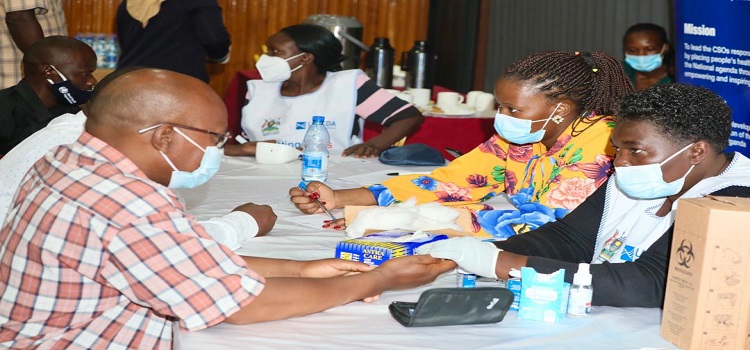Strengthen nutrition laws to fight Non-Communicable Diseases

Members of Parliament have been urged to strengthen legal and regulatory measures to promote healthy diets in order to prevent the risks of Non-Communicable Diseases (NCDs).
Samalie Namukose, the Assistant Commissioner in charge of Nutrition at the Ministry of Health has courted legislators to speed up the passing of laws and policies related to food and nutrition in order to curb the consumption of unhealthy foods.
This was during the opening day of the four-day Uganda Parliamentary Nutrition Week on Monday, 14 March 2022 at Parliament. The workshop running from 14 to 17 March 2022 is organised by the Uganda Parliamentary Alliance on Food and Nutrition Security in partnership with Centre for Food and Adequate Living Rights (CEFROHT).
“As parliamentarians, you have a role to play to ensure that we pass these legislations and policies related to food and nutrition. We have the Food and Drug Act which has stalled for a very long time and because it has lagged behind, it is affecting implementation and enforcement of some of the regulations,” Namukose said.
The Food and Drug Act has not been amended since its formulation in 1959.
According to the World Health organization (WHO), an unhealthy diet is one of the major risk factors for NCDs in low and middle income countries.
Diets which are high in fat, salt and added sugars contribute to more NCDs than physical inactivity, alcohol and smoking combined.
Namukose said that consumption of unhealthy foods is being fueled by inadequate and concealed information regarding nutrition labeling.
Labeling involves putting nutrition information on the food product in its packaging; indicating how much of the elements like salt, sugar and fat are there.
“Currently this information is put in tiny letters at the back of the pack and I can assure you that most of us including the MPs do not look at this. So you do not know how much salt or sugar that you are taking and yet we know that these elements are related to disease,” Namukose said.
She called for Parliament’s intervention in order to regulate nutrition labeling to ensure that information about the product is interpretative and factual.
This information ranges from the product name, the ingredients used in the manufacture of the foods, instructions for use, storage instruction, country of origin, name and address of the manufacturer among others.

Dr Hafisa Kasule, National Advisor in charge of NCDs, urged the parliamentarians and the public in general to embrace nutrition labeling to enable them make informed decisions and reduce the consumption of unhealthy foods.
“Policy implementing, monitoring and evaluation can protect against unhealthy foods, but also we need Parliament to have regulations on labeling so that we know what we are buying,” she said adding that, ‘nutrition is multi-sectoral; some people are controlling trade, others are controlling the growth of the foods, so for us to have healthy foods we need to work together with these different sectors’.
AUDIO Dr Kasule
The Uganda Nutrition Week targets MPs, government bodies, academia, media and civil society organizations as part of the multi-sectoral key players in promoting laws, regulations and policies for health food environments and diets.
During this week, MPs, staff and other members of the public will receive free screening and counseling on NCDs.
